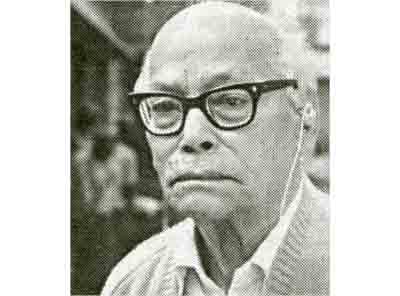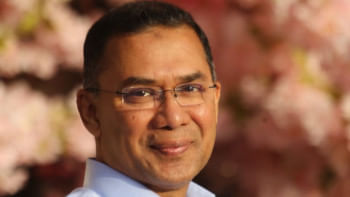Comrade Moni Singh: A lifelong communist

In 1945, a general session of the Council of All India Peasants was held in Netrokona. At that time, Netrokona town was no bigger than a bazaar. Thousands of people attended the session. A weeklong bazaar was organised on this occasion, and it created shortage of cash money. Papers signed by Comrade Moni Singh were used as currency to tackle the crisis. People had such unflinching faith in and respect for him.
Moni Singh was born on July 28, 1901 in Kolkata. His father, Kali Kumar Singh, was the son of the zamindar of Purbadhala, Netrokona. His mother came from a royal family of Susang Durgapur of Netrokona district. Although born in a royal family, Moni Singh selflessly detached himself from the opulent, peaceful and elegant lifestyle and instead chose a hard life of struggle. He devoted himself to bringing about revolutionary changes in the society. He revolted against his family's exploitation of the poor people. He organised peasants' movements and soon became the favourite of the have-nots.
In his school days in Kolkata, Moni Singh got involved with revolutionary activities. He joined the secret Aushilon Samity and waged armed struggle against British imperialism. In 1921, an arrest warrant was issued against him. While living in hiding, he was indoctrinated with the idea of communism. In 1925 he joined the Indian Communist Party at the very seminal stage of the communist movement.
In his early political life Moni Singh got involved with the workers' movement. He was very popular among the workers at Metia Buruj, Kolkata. But observing the dire condition of the peasants of his district, Mymensingh, he decided to join the peasant movement. He launched a fierce peasant movement in greater Mymensingh. He was the mentor of the Tanka and Tebhaga Movement. The spark of the peasant movement forced the government to concede to the demand and abolish the Tanka system.
Moni Singh did not confine himself only to the peasant movement but also inspired others to set up educational institutions, health facilities and small industries in this region. He motivated his party men to devote themselves to this end. He used to say that without collective development of life one could not have a developed society. Patriotism means assurance of food, clothing, dwelling, health, education and freedom of speech for all.
Moni Singh was one of the founders of the East Pakistan Communist Party, which was totally banned during the Pakistan period. Communist leaders had to be either in prison or underground. The Communist Party and Moni Singh played very crucial role in the 1948 Hunger Procession and 1952 Language Movement. The role of the Communist Party under the leadership of Moni Singh in the Jukto Front Election in 1954 was valuable and positive. It also played an important role in the anti- Ayub movement in '60s. Here it is important to mention the student movement. Moni Singh, while being underground, directed the student movement with his valuable advice.
In 1971, during the massacre by General Yahya Khan, Moni Singha was in Rajshahi jail. His followers broke open the jail and freed him and thereafter, he, along with his loyal comrades, entered India and devoted himself to organising the liberation war.
His unforgettable leadership during the liberation war, and especially his role in forming the peoples' army with the members and supporters of CPB, NAP and Students' Union, is noteworthy. Moni Singh's contribution was by no means confined to the battlefield only. He was one of the most influential advisers to the government-in-exile during the liberation war. Moni Singha and the Communist Party secured the political and military support of the then Soviet Union and the international socialist world and communist movement, for the liberation war.
After liberation, he was the inspiration behind rebuilding of the Communist Party as well as the devastated country; his party joined the struggle vigorously to liberate the working class. His honesty and sincerity in personal life is worth emulating, and his love for the people was proverbial.
The great man left us in mourning on December 31, 1990. His sacrifice, courage and struggle will inspire our future generation forever.
This article was first published in Prothom Alo on December31, 2011. ( Translation ours.)

 For all latest news, follow The Daily Star's Google News channel.
For all latest news, follow The Daily Star's Google News channel. 



Comments